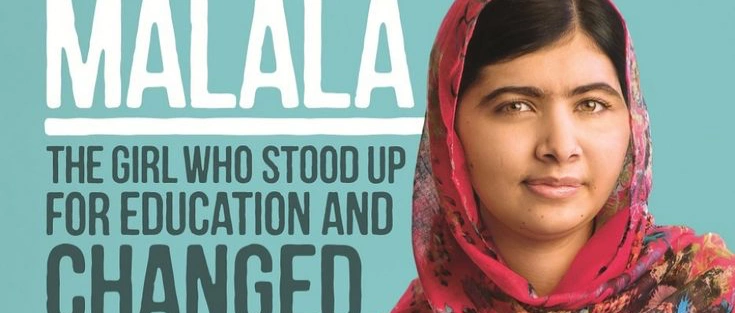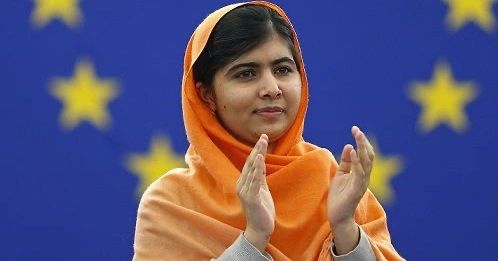Malala Yousafzai — The Girl Who Spoke, and the World Listened
In a world where millions of children are denied basic education, the voice of one girl changed the course of history. Malala Yousafzai, born in the Swat Valley of Pakistan in 1997, understood from a young age how powerful education could be.
When the Taliban took control of her region and banned girls from going to school, Malala, then just a teenager, began to speak out — first anonymously, then openly.
She wrote a blog for the BBC, describing life under Taliban rule: fear, violence, the closing of schools. Her words reached the world — and defied local extremism.
On October 9, 2012, Malala was shot in the head by a Taliban gunman while riding a school bus. She survived — and grew stronger.
After a long recovery in the UK, Malala became a global advocate. She spoke at the UN, met with world leaders, and in 2014, at the age of 17, became the youngest-ever Nobel Peace Prize laureate.
“One child, one teacher, one book, one pen can change the world,” she declared.
Through the Malala Fund, she now supports girls’ education worldwide, especially in areas affected by poverty, war, or gender discrimination.
She continues to fight — not just for access to education, but for the dignity, rights, and futures of millions of girls who need a voice.
Malala Yousafzai's story is not just one of survival — it is one of radical hope, relentless courage, and the refusal to be silenced. Her journey from a rural valley in Pakistan to the global stage has made her a symbol not only for education rights, but also for resilience in the face of extremism and oppression.
What makes Malala’s activism extraordinary is not just the risks she took, but the clarity of her vision at such a young age. Even before the world knew her name, she believed education was not a privilege — it was a right. Her courage wasn’t born from rebellion, but from conviction: that every girl deserves to learn, to lead, and to live with agency.
As her public profile grew, so did the challenges. Threats against her and her family intensified. But Malala never chose hatred as a response. Instead, she spoke with empathy — not just for herself, but for the countless children denied the chance to sit in a classroom, to read freely, to dream beyond traditional roles. She carried not only her story, but theirs.
Malala’s influence extends far beyond speeches and headlines. The Malala Fund, co-founded with her father Ziauddin — an educator who inspired her early on — supports grassroots organizations in countries like Nigeria, Ethiopia, India, Brazil, and Afghanistan. The Fund’s mission is simple but powerful: invest in local education leaders, amplify girls’ voices, and hold governments accountable for policy change.
She also emphasizes the intersectionality of education with other global issues: climate change, refugee crises, racial justice, and digital access. Malala believes that education is not a single cause, but a foundational solution — one that ripples across every social and economic sphere.
A graduate of Oxford University, where she studied Philosophy, Politics, and Economics, Malala continues to bridge activism with academia. She has used her global platform to highlight how cultural traditions, poverty, and conflict disproportionately affect girls. Her campaigns challenge not only policies but perceptions — working to shift how the world sees young women and how young women see themselves.

In interviews and writings, she often reminds audiences that she is still learning, still growing. This humility — coupled with her wisdom — makes her voice uniquely powerful. She is not claiming to have all the answers; rather, she is asking the world to listen, to learn, and to act.
Malala’s impact is visible in classrooms reopened, in policies reformed, and in the millions of girls who now see themselves in her. But perhaps most importantly, she has changed what it means to be a young activist in the 21st century. She has shown that age does not limit authority, that bravery is not the absence of fear, and that stories — even painful ones — can become tools for justice.
Her memoir, I Am Malala, continues to inspire readers of all ages, reminding us that change often begins in the smallest of places — a classroom, a diary, a voice raised in defiance.

Through her life and work, Malala Yousafzai reminds the world of a simple truth: educating girls doesn’t just change individual lives — it changes entire societies. Her fight is far from over, but her legacy is already undeniable. She has turned tragedy into transformation and stands not only as a survivor, but as a symbol of what is possible when one voice dares to speak for millions.
Close